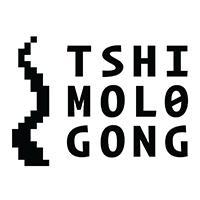Cybersecurity and Technopolitics
Public Seminar
Tuesday 29 August 2017, 16h00-18h30
Tshimologong Digital Innovation Precinct, Wits University
41 Juta St., Braamfontein, Johannesburg

Please RSVP at: https://www.eventbrite.com/e/tshimologong-digital-public-seminar-cyber-security-and-techno-politics-tickets-37027072972
Speaker 1: Prof Ewan Sutherland, LINK Centre, an independent telecommunications policy analyst. He has undertaken assignments in Asia, Southern Africa and Europe, for governments, infoDev, ITU and the OECD. He was Executive Director of the International Telecommunications Users Group (INTUG), based in Brussels, between 1999 and 2005. He spent fifteen years as an academic, latterly as a dean at the University of Wales and has taught at the Universities of Wolverhampton, Westminster, Stirling and Wales, plus a semester as visiting faculty at GSTIT (Addis Ababa). He is Visiting Professor at the LINK Centre. http://ssrn.com/author=927092
Speaker 2: Iginio Gagliardone teaches Media and Communication at the University of the Witwatersrand, South Africa, and is Associate Research Fellow in New Media and Human Rights at the Programme in Comparative Media Law and Policy, University of Oxford. He holds a PhD from the London School of Economics and Political Science and has spent years living and working in Africa, including for UNESCO. His research focuses on the relationship between new media, political change, and human development, and on the emergence of distinctive models of the information society in the Global South.
The governance of cybersecurity – the case of South Africa: National governments have adopted cybersecurity strategies to counter a range of threats, including foreign governments attacking critical national infrastructure (CNI) (e.g., the electricity grid in Ukraine (Zetter, 2016)), criminals ransoming computer systems (e.g., a hospital in England (Palmer, 2017)), hacktivists protesting against firms (e.g., Armscor (Moyo, 2016a; 2016b)) and identity theft (Romanosky, Telang, & Acquisti, 2011). These threats are of growing significance. The governance challenges that follow from this include coordinating cybersecurity activities across all ministries and government operations, including those at sub-national levels (e.g., municipalities), independent agencies (e.g., regulators), and contractors (Chertoff, 2008), creating significant challenges for governments in assessing risks and devising responses to cyber-crime, cyber-espionage, cyber-terrorism and cyber-warfare. In 2012, the South African Cabinet adopted a National Cybersecurity Framework Policy (NCFP) (Mahlobo, 2015). At this time, the Information Regulator (i.e., the data protection authority) is not fully operational and the Cyber Warfare Strategy is not yet finalised. The proposed coordination mechanisms are complex, making their management difficult. Moreover, there are only limited oversight and review mechanisms. South Africa has been the country most often attacked in Africa (Wolfpack, 2013; TMG Digital, 2016; van Heerden, von Solms, & Mooi, 2016), with an estimated cost in 2014 of around ZAR 5.8 billion (Fripp, 2014). While one in ten businesses reported a cyberattack during 2015, this is expected to rise significantly from 2018 when reporting is, finally, made mandatory, triggering much greater attention to prevention and security, plus legal liability (Jonker, 2015).
The technopolitics of ICTs and development in Africa: The fascination for the possibilities of promoting more inclusive forms of development in the information age have obfuscated the reality of the complex negotiations among political and economic actors who are seeking to use technology in their competition for power. Building on research conducted for the book “The Politics of Technology in Africa”, recently published by Cambridge University Press, Iginio Gagliardone will explore the complex relationship between politics, development, and technological adoption in Africa, with a specific focus on Ethiopia, the continent’s second most populous country and its largest recipient of development aid. He will discuss, in particular the relatively hidden 'technopolitics' of ICTs, their ability to embody and enact political goals, offering a strong and empirically grounded counter-argument to prevalent approaches to the study of technology and development that can be applied to other cases in Africa and beyond.
Tea, coffee and light snacks will be served.

